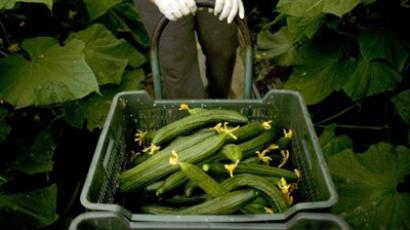Deadly cantaloupes kill 16 in America

As many as 16 people in the United States have died within the last two months after contaminated cantaloupes tainted with the listeria bacteria made its way to grocers across America.
The US Center for Disease Control and Prevention has found cases of listeria poisoning in 18 states so far, and has pegged the problem as causing at least 13 deaths. They are investigating more passings and believe that 72 people in America have been infected so far.Listeria is a bacterium that is resistant to both extreme hot and cold conditions and is usually found in soil, water and the innards of animals. Food-wise, an outbreak tied to a cantaloupe harvest is unusual, however. Typically the bacterium is carried in dairy products and raw meats. There around 800 cases of listeria illness in the United States every year, but rarely does an outbreak cause so many deaths. An outbreak in 1998 caused by contaminated hot dogs and deli meats caused 32 people to die from coast-to-coast. Around 100 others were injured in that incident.The bacterium poses quite a problem to people because it could take a victim up to a month to show symptoms. "People who ate a contaminated food two weeks ago or even a week ago could still be falling sick weeks later,” says Dr. Robert Tauxe of the CDC to The Associated Press. Illnesses in this outbreak were first identified in late July, but the product was shipped to at least 17 different states between July 29 and September 10.The “Rocky Ford” brand of cantaloupe from Jensen Farms in Holly, Colorado is considered the culprit in this case. The distributor has issued a recall on their produce earlier this month, but because of its ability to withstand various heat conditions and lengthy incubation period, even those that consumed cantaloupe weeks earlier should show concern. The FDA has asked that all consumers throw out the recalled melons in order to avoid illness.Shoppers that may have picked up Rocky Ford-brand melons should look out for common symptoms of listeria, which includes fever and muscle aches, occasionally with other gastrointestinal symptoms. Meningitis and cervical infections are also known symptoms, the latter of which has been known to cause cases of stillbirth. If the condition worsens, it can often cause victims to become incapacitated and unable to speak. Pregnant women, people with AIDS and those with weakened immune systems are most vulnerable to the outbreak, says the CDC.Already more people have been killed by the listeria outbreak than the last big food scare in America. Infected peanuts back in 2008 managed to take nine lives from salmonella poisoning.














